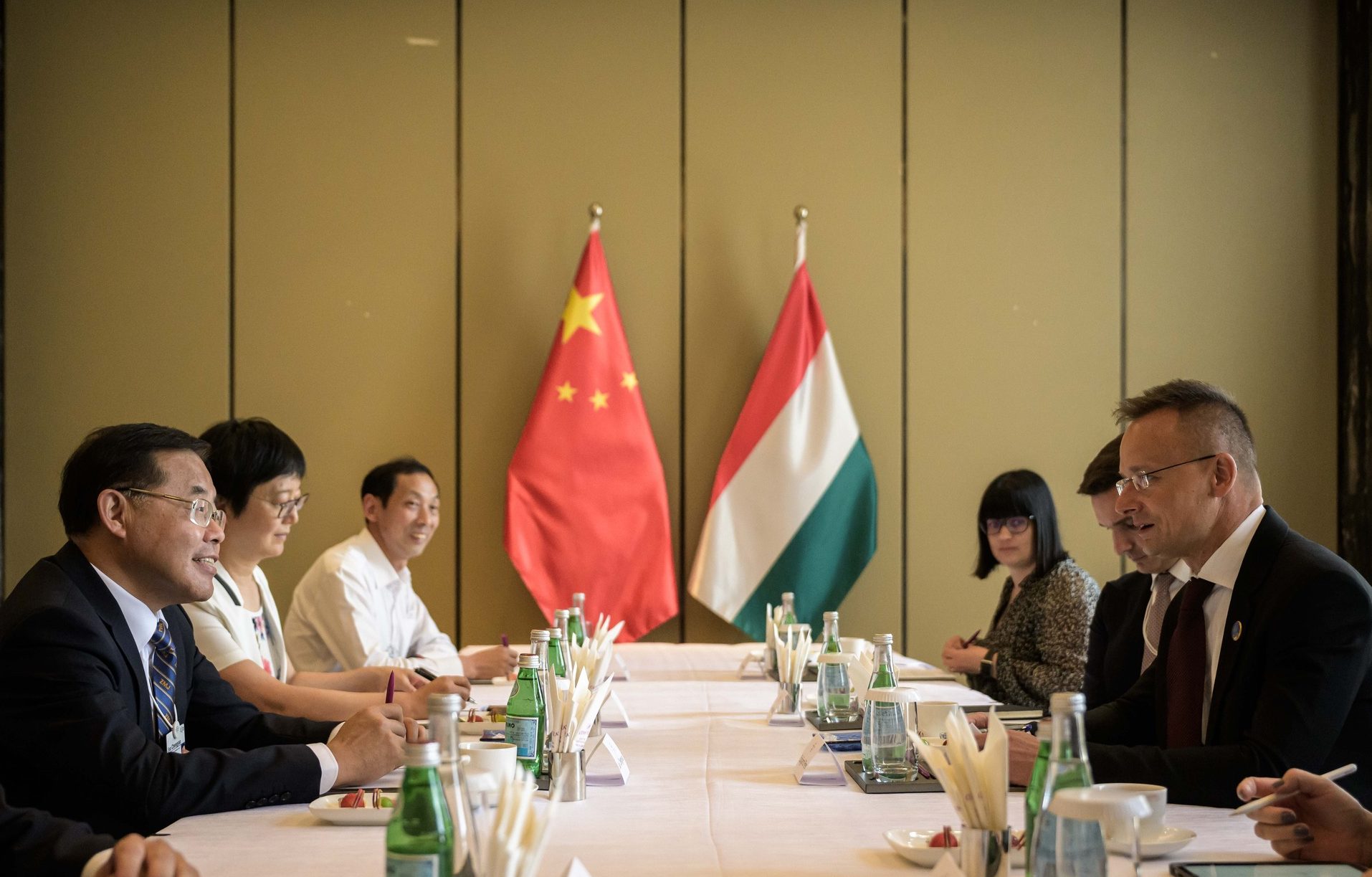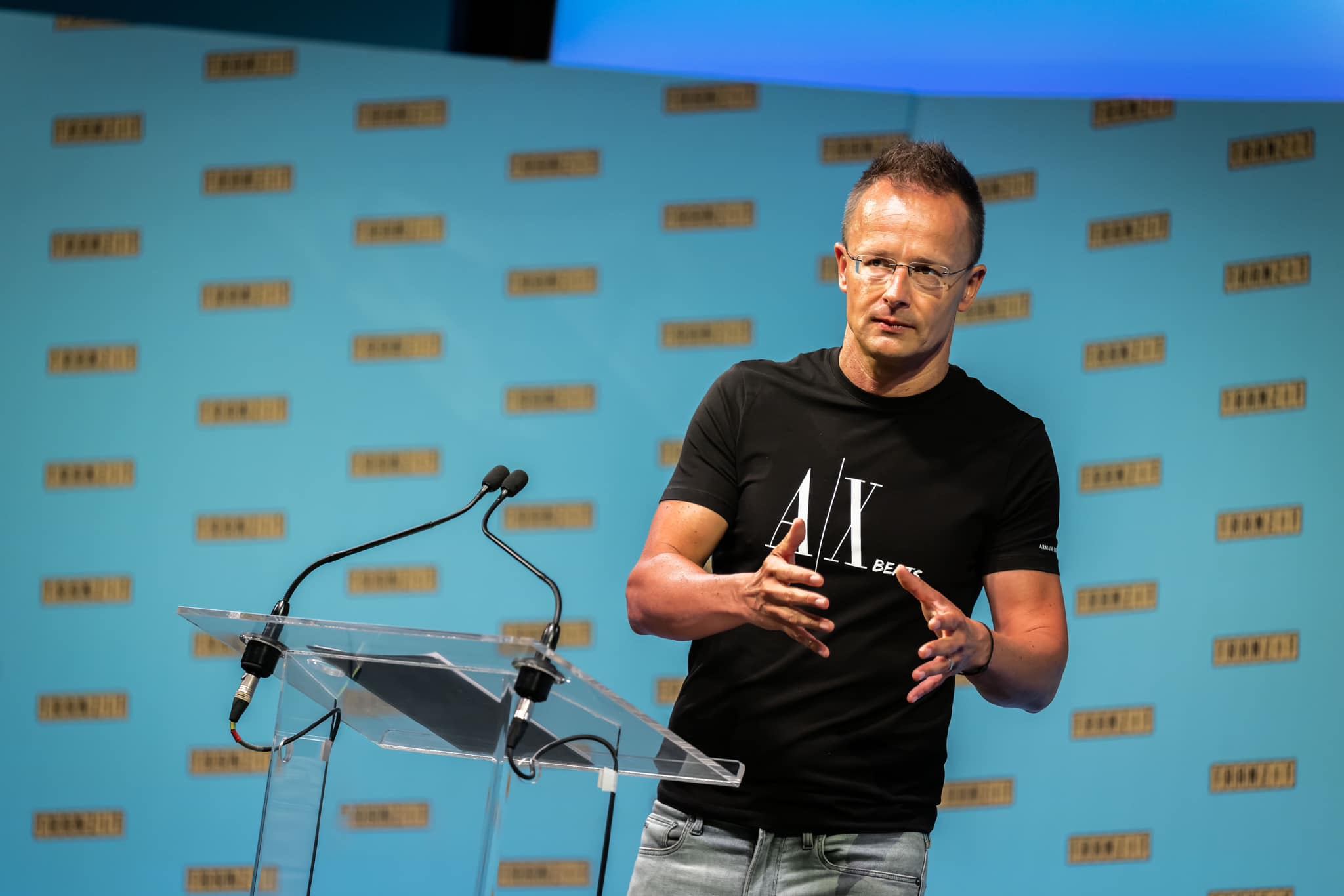
After 2020, Chinese companies will continue to bring the most investment to Hungary this year.Continue reading

The government has the greatest legitimacy in Europe following last year’s elections, and as a result Hungary can implement the most sovereign foreign policy on the continent, focusing solely on the national interest, Minister of Foreign Affairs and Trade Péter Szijjártó said in Tihany on Saturday.
In his speech at the political Tranzit Festival, the minister spoke of the current high level of uncertainty in international politics and pointed out that despite this, Hungary has a wide margin for maneuver in foreign policy. He stressed that this is essentially determined by two factors: geography, and more importantly, what Hungary’s goals are and whether the government is able to look at them from its own perspective alone.
In the current extremely high and powerful tide of international politics, it must be made clear that the goal of Hungarian foreign policy cannot be other than the assertion of Hungarian interests,
he emphasized.
Speaking about the war in Ukraine, Péter Szijjártó emphasized that the government has not taken a single action in the past year and a half that would have prolonged the war or even contributed to the death of a single person. However, he pointed out that not everyone takes this approach in Europe. “Every Foreign Affairs Council meeting starts with the High Representative for Foreign Affairs proudly saying that what we have delivered is almost I-do-not-know-what percentage of what the US has delivered. Who cares? We have driven ourselves into this spiral. We have also driven ourselves into this spiral of sanctions. We do not know if there is any area we have not already sanctioned,” he remarked.
The minister referred to the crises of the last decade: the financial, migration, and health crises, and the outbreak of the war in Ukraine, turning the previous world order upside down. “That is why we should not expect a smoothing of the waters in the coming years, but even rougher waves. International politics will be about jostling, positioning, and unrest,” he said.
At such times, he warned, there is a tendency for economic blackmail, slander, false news, external intervention, and the destruction of countries.
He underscored that this was evident in the elections of recent years, with external interference against all political forces that did not represent the globalist, liberal side. He gave the example of the Czech Republic and Slovakia, where a few weeks before the elections, the main candidates of the most promising parties were arrested. He added that the Polish governing party also faces huge international pressure ahead of the upcoming elections in the autumn.
Speaking about the EU’s competitiveness, Szijjártó recalled that it is weaker than ever, and that the continent is losing a huge amount of money by allowing itself to be dragged into the competition with the United States over who gives Ukraine more military support. According to him, it was a huge mistake to enter into this competition with the world’s number one military power, and as a result, natural gas in Europe costs seven times as much as in the United States, while electricity in China costs a third of that in Europe.
He pointed out another problem of recent politics: the world was making great strides towards forming blocs again.
East-West cooperation is not a question of political taste, not a question of gusto, but a question of national interest, a question of national security,”
he emphasized.
He pointed out that the EU economy is now only in third place globally, behind China, and its share of the world’s gross domestic product (GDP) has fallen. According to him,
Europe should therefore cooperate as closely as possible with China, but there are various efforts to cut off relations, which would be seriously contrary to the interests of the continent and Hungary in particular.
Regarding the Hungarian economy, the foreign minister said that Hungary had not only managed to stay on its feet despite the crises of recent years, but had also managed to grow economically. He said it was important for Hungary to turn the situation to its own advantage and to carve out for itself as large a share as possible of the revolutionary transformation of the automotive industry, which is dominating the world economy.
In this context, he pointed out that the world’s largest producers of electric batteries are in the East, leaving Western companies in the sector in a situation of heavy dependence. He praised the success of the strategy of opening up to the East, facilitating investment from that region. “If we had pursued a foreign policy in the past years that would have pushed for the satisfaction of some external actors, if we had pursued a foreign policy of alignment, none of this would be possible today,” he added.
Via MTI, Featured photo via Facebook/Szijjártó Péter